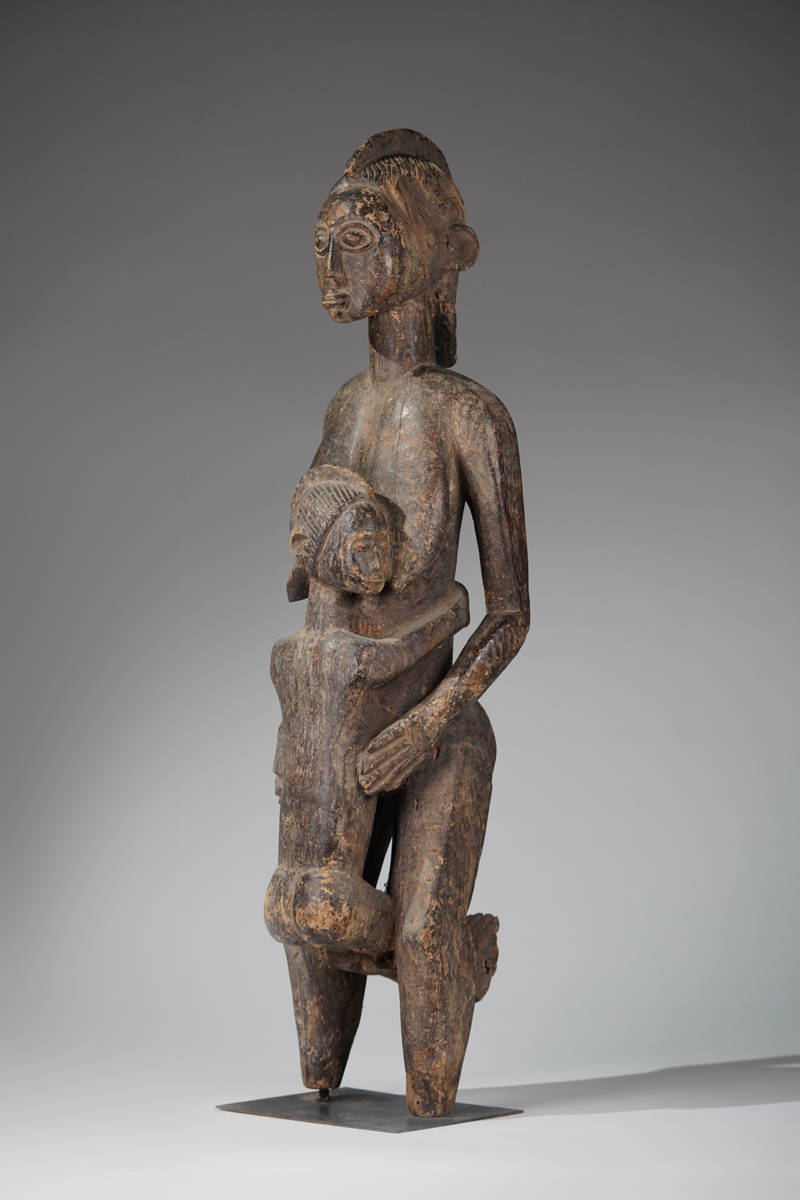|
A amazing Lobi Maternity, Burkina Faso, of the Buna region, Ivory Coast, incl. stand. Lobi Maternity refers to traditional maternity care practices among the Lobi people, an ethnic group found in parts of Burkina Faso, as well as in neighboring countries like Ghana and Côte d'Ivoire. The Lobi people have a rich cultural heritage with their own customs and social systems, including how they approach childbirth and maternal care. In rural areas, such as in Burkina Faso, traditional birth attendants (TBAs) or midwives play a crucial role in maternity care. These attendants are often experienced older women from the community who use knowledge passed down through generations to assist women during pregnancy, labor, and delivery. Key Features of Lobi Maternity Practices: Prenatal care: Traditional prenatal care may involve herbal remedies and spiritual practices to ensure the health of the mother and baby. Elders and women in the community might give advice on what foods to eat, and avoid, and which behaviors to adopt during pregnancy. Birth Rituals and Customs: The birth itself is often considered a community event. Families and close friends of the mother gather to support her, and there are various cultural rituals associated with childbirth. Women typically give birth at home with the assistance of a traditional midwife or elder, although modern health facilities are becoming more accessible in some areas. Postpartum care: After childbirth, women are generally given time to rest and recover. During this period, they may be cared for by female relatives who help with household chores and bring nutritious foods. Specific postpartum rituals and practices are also common, such as the mother undergoing certain ceremonies to cleanse her or protect her from evil spirits. Role of Men: While women play the central role in childbirth, men in the Lobi community may be involved in supporting their wives emotionally and financially. In some cases, they may also contribute to the well-being of the child by providing offerings or participating in certain rituals. Modern Maternity Care in Burkina Faso: In urban centers and larger towns in Burkina Faso, modern healthcare systems, including hospitals and clinics, are increasingly providing maternity care. However, many rural areas, where traditional practices remain strong, still rely heavily on traditional birth attendants. The government and NGOs have worked to improve maternal and child health by encouraging the use of skilled birth attendants in formal health settings to reduce maternal and infant mortality rates. Challenges and integration: Access to healthcare: Rural areas may still lack sufficient healthcare infrastructure, so traditional care is sometimes the only option available. Cultural sensitivity: Efforts to improve maternal health must respect local customs while encouraging the use of formal healthcare services. The integration of traditional and modern medicine can be challenging but necessary to ensure more women receive safe and effective care during childbirth. sold Height: 1m |
 photo: wolfgang-jaenicke.com, for more information, please write us an e-mail with the identification number of the photo identification no. XBD179777.jpg |